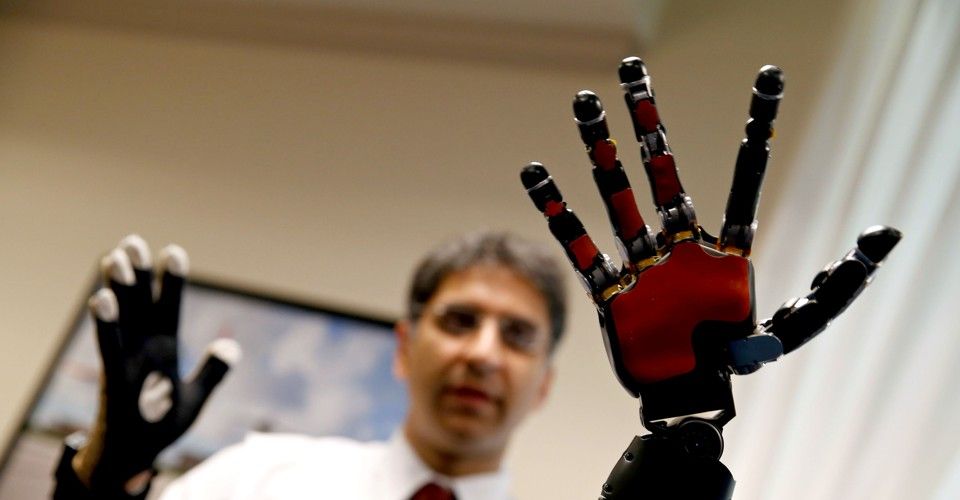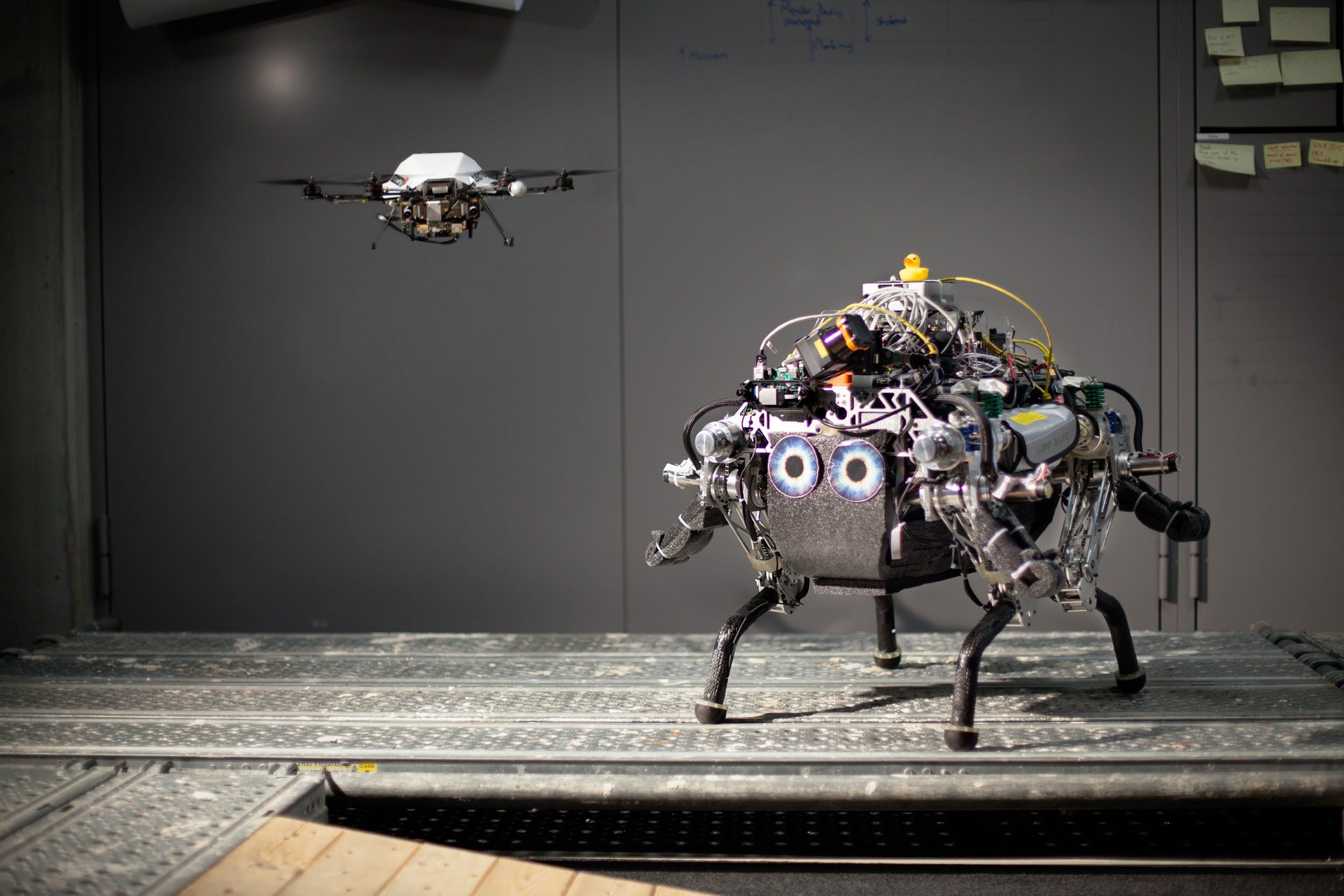
For decades after its inception in 1958, the Defense Advanced Research Projects Agency—DARPA, the central research and development organization of the Department of Defense—focused on developing vast weapons systems. Starting in 1990, and owing to individuals like Gorman, a new focus was put on soldiers, airmen, and sailors—on transforming humans for war. The progress of those efforts, to the extent it can be assessed through public information, hints at war’s future, and raises questions about whether military technology can be stopped, or should.
Gorman sketched out an early version of the thinking in a paper he wrote for DARPA after his retirement from the Army in 1985, in which he described an “integrated-powered exoskeleton” that could transform the weakling of the battlefield into a veritable super-soldier. The “SuperTroop” exoskeleton he proposed offered protection against chemical, biological, electromagnetic, and ballistic threats, including direct fire from a.50-caliber bullet. It “incorporated audio, visual, and haptic [touch] sensors,” Gorman explained, including thermal imaging for the eyes, sound suppression for the ears, and fiber optics from the head to the fingertips. Its interior would be climate-controlled, and each soldier would have his own physiological specifications embedded on a chip within his dog tags. “When a soldier donned his ST [SuperTroop] battledress,” Gorman wrote, “he would insert one dog-tag into a slot under the chest armor, thereby loading his personal program into the battle suit’s computer,” giving the 21st-century soldier an extraordinary ability to hear, see, move, shoot, and communicate.
Read more

















